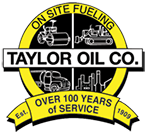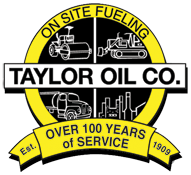Fuel and the Total Cost of Ownership – The fleet owners and managers of today know the importance of looking beyond the initial purchase price and taking into account the total cost of ownership (TCO) of their equipment. Residual value, repairs, maintenance and parts, along with other hard and soft costs, also should be considered when it comes to the true expense of owning a vehicle.
No doubt, fuel has always been a huge part of the equation, but it’s usually been centered around the costs of fuel. Fuel impacts vehicle maintenance and performance, of course. But with more and more fleets required to hit sustainability targets, emissions must also be a considered in fleet management.
Biodiesel helps lower a fleet’s total cost of ownership (TCO) in many ways, such as through the easement of maintenance issues, increasing performance and cutting back on emissions.
Meeting Goals of Sustainability
Sustainability when it comes to biodiesel’s environmental benefits should be considered as part of the total cost of ownership, even though it traditionally hasn’t been. This is important, as clean air regulations are rising. Many private and public sector organizations are starting to adopt sustainability plans, so whether your fleet has its own organizational goals or is working to help a client meet theirs, the emissions coming out of your equipment must be factored into TCO.
Biodiesel cuts down on greenhouse gas emissions by up to 86 percent, as compared with petroleum diesel. Biodiesel also stands out even compared with other alternative fuels:
- 580 percent higher with petroleum diesel
- 195 percent higher with an electric vehicle with natural gas-based electricity
- 435 percent higher with compressed natural gas
Benefits of Performance
Biodiesel also positively impacts maintenance, downtime and parts, which are all main components of total cost of ownership.
- Fewer diesel particulate filter (DPF) issues: DPFs capture soot in diesel vehicles so they aren’t released into the atmosphere. Regenerations designed to clear DPF clogging can harm fuel economy and result in downtime. Biodiesel’s cleaner burn is able to produce fewer particulate matter, AKA soot, which helps reduce DPF clogging, wear and regeneration.
- Added lubrication:Fuel pumps and injectors require adequate lubrication or the metal parts will rub together, resulting in excess heat, damage and wear. Ultra-low sulfur diesel (ULSD) doesn’t feature the required lubricity, and additives frequently must be used to achieve it. This adds cost and complexity to all kinds of fleets. Biodiesel happens to have excellent lubricity.
- Higher Cetane: A diesel fuel’s Cetane number indicates fuel quality. The higher the Cetane number is, the shorter the ignition time will be. Shorter ignition gives complete combustion more time to happen, which in turn assists engines in operating more effectively. The biodiesel ASTM specification for Cetane is 47; a conventional diesel’s is 40; biodiesel is above 50.
Integrated Energy Management (IEM)
An IEM approach is another way your fleet can lower TCO. This entails a comprehensive strategy whereby you would consider all available fuel sources and utilize the options that best meet your needs.
IEM allows your fleet to transition away from fossil fuels while considering the market affordability and readiness of various alternatives. In the end, this allows you to better meet both short- and long-term business goals and objectives.
Contact Taylor Oil
Ready to learn more about the role fuel plays in total cost of ownership, and how on-site fueling can help your business? Contact Taylor Oil to request fuel today.


